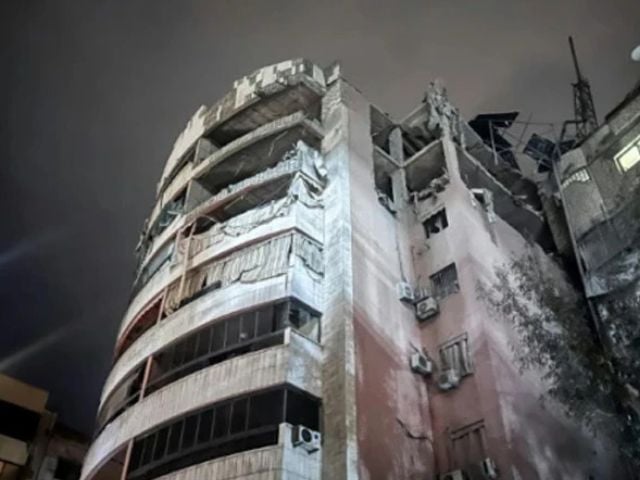An Israeli airstrike early on Tuesday in the southern suburbs of Beirut killed at least three people and injured seven, according to Lebanon’s health ministry.
The strike further tests the delicate four-month ceasefire between Israel and Hezbollah.
The Israeli military stated it targeted a Hezbollah militant who had allegedly been involved with Hamas operatives.
The attack came just days after a similar strike in the same Hezbollah stronghold area, known as the Dahiyeh, though Hezbollah did not immediately confirm the identity of the target.
Lebanese President Joseph Aoun condemned the airstrike, calling it a “dangerous warning” that could signal premeditated Israeli aggression.
He emphasised the need for Lebanon to strengthen its diplomatic efforts and seek international support for its sovereignty. Prime Minister Nawaf Salam also criticised the attack, calling it a violation of U.N. Resolution 1701 and the ceasefire terms.
Reports from the scene indicated significant damage to the upper floors of a building, with windows blown out but lower floors remaining intact. No evacuation warning had been issued before the strike, and families fled the area after the attack.
The ceasefire, brokered in November, had aimed to halt the year-long conflict and had led to the withdrawal of Israeli troops and the deployment of Lebanese forces in southern Lebanon. However, tensions have remained high, with both sides accusing each other of violating the terms.
The recent strike follows an increase in hostilities, with Israel having delayed a promised troop withdrawal earlier this year and responding to rocket fire from Lebanon in March. Hezbollah, which has denied involvement in the rocket fire, continues to be a significant force in the region.
The conflict, sparked by the Gaza war in 2023, has led to significant casualties, with both Hezbollah and Israel engaged in ongoing hostilities.

